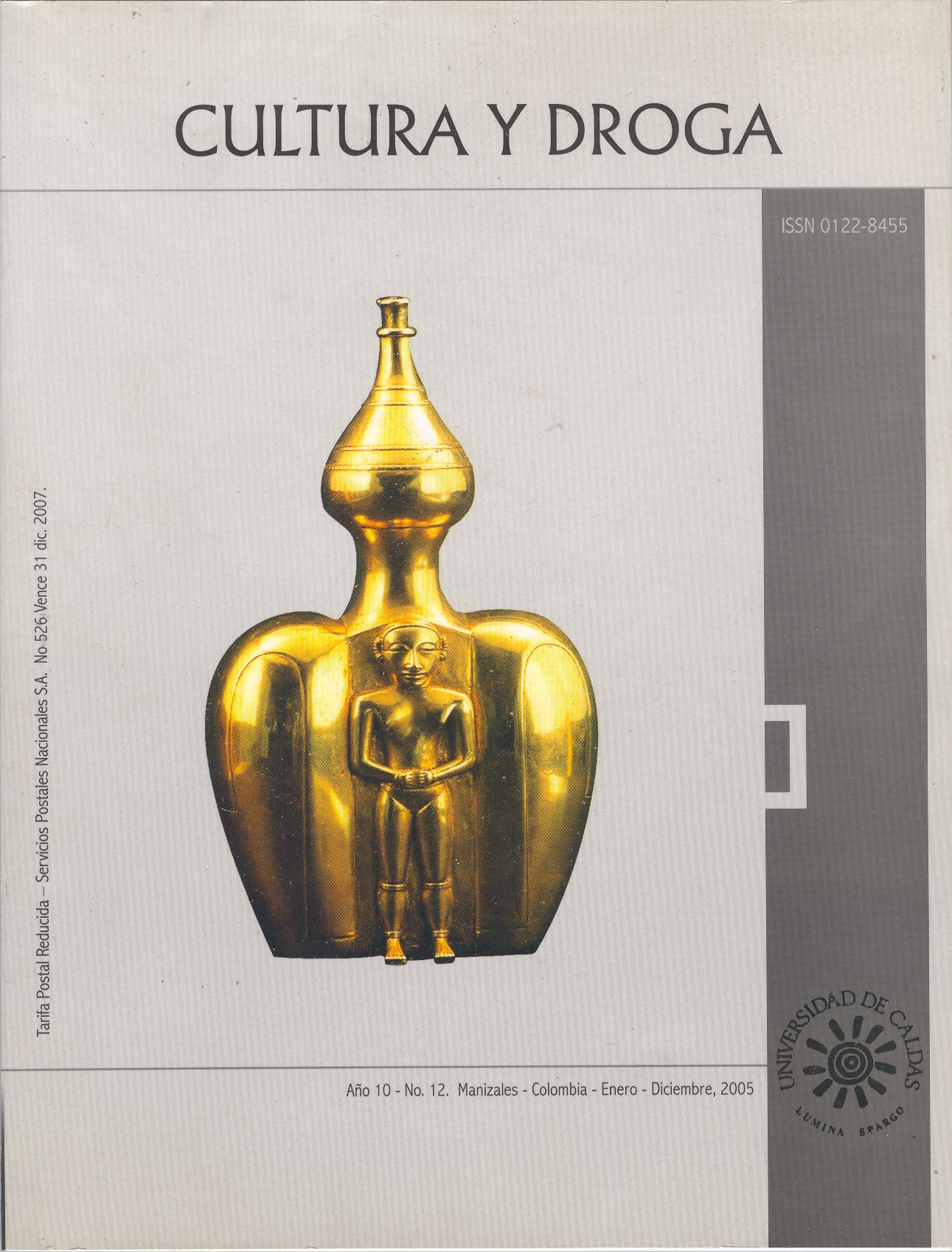Autores/as
Resumen
RESUMEN: Este artículo sugiere que la investigación contemporánea sobre política de drogas se beneficiaría de los conceptos e ideas relacionadas con una perspectiva postestructuralista, en particular, las ideas desarrolladas por el filósofo francés Michel Foucault. Teniendo en cuenta la obra de Foucault en cuanto a su interés por estudiar los procesos mediante los cuales ciertas conductas o fenómenos se vuelven problemáticos en determinado momento histórico; de igual manera, uno puede preguntarse cómo y por qué el uso de ciertas sustancias se convierte en un problema que debe ser regulado por políticas públicas, cuando no criminalizado, prohibido o proscrito como una práctica anormal, indeseable o subversiva. Un recuento de las preguntas fundamentales de la investigación contemporánea sobre drogas y su posible relación con algunos de los conceptos e ideas en el trabajo de Michel Foucault, conforman el cuerpo de este artículo. Basado en la investigación que la autora viene desarrollando sobre políticas del cannabis en Europa, este artículo constituye un aporte a la epistemología y a la práctica de investigación sobre política de drogas que puede ser aplicada en distintos países.
Palabras clave
Citas
COHEN, P. (1990). Drugs as a Social Construct. Dissertation. Retrieved December, 2005, from http://www.cedro-uva.org/lib/cohen.drugs.toc.html
COHEN, P. (1993). Repensar la política de control de drogas, perspectiva histórica y herramientas conceptuales. Simposio La Crisis del Desarrollo Social en los Noventa, organizado por el Instituto de Investigación para el Desarrollo Social de las Naciones Unidas, Ginebra, Suiza. En www.uva.cedro.nl
CONRAD, P. and SCHNEIDER, J. (1980). Deviance and Medicalization: From Badness to Sickness. St. Louis, The C. V. Mosby Company.
DAVIES, J. B. (1997). The myth of addiction. Amsterdam, Harwood Academic Publishers.
DREYFUSS, H. and RABINOW, P. (1983). Michel Foucault: Beyond Structuralism and Hermeneutics. Chicago, The University of Chicago Press.
ESCOHOTADO, A. (1998). Historia General de las Drogas. Madrid, Espasa Calpe.
FOUCAULT, M. (1972). The Archaeology of Knowledge. New York, Vintage/Random House.
FOUCAULT, M. (1973). Madness and Civilization: A History of Insanity in the Age of Reason. New York, Vintage/Random House.
FOUCAULT, M. (1977). Nietzsche, Genealogy, History. In (Ed. ^Eds.) Michel Foucault: Language, Counter-Memory, Practice: Selected Essays and Interviews. Bouchard, D. F. New York, Cornell University.
FOUCAULT, M. (1979). Discipline and Punish: The Birth of the Prison. New York, Vintage/Randon House.
FOUCAULT, M. (1980b). The confession of the flesh. In Power/Knowledge. Gordon, C. Brighton, The Harvester Press.
LEVINE, H. G. (1978). The Discovery of Addiction: Changing conceptions of habitual drunkenness in America. Journal of Studies on Alcohol, 15, 493-506.
MILLS, J. (2000). Madness, Cannabis and Colonialism. New York, St. Martin’s Press.
MILLS, J. (2003). Cannabis Britannica: Empire Trade and Prohibition 1800-1928. Oxford, Oxford University Press.
MUSTO, D. (1973). The American Disease: Origins of Narcotic Control. New Haven/London, Yale University Press.
O’SHAUGHNESSY, W. (1842). The Bengal Dispensatory and Companion to the Pharmacopoeia. London, Allen.
REINARMAN, C. (2005). Addiction as an accomplish: the discursive construction of a disease. Addiction: Research and Theory, 13(4): 307-320.
STIMSON, G. V. and OPPENHEIMER, E. (1982). Heroin Addiction: Treatment and control in Britain. Cambridge, University Press.
WALTON, S. (2001). Out of It: A Cultural History of Intoxication. London, Penguin Books Ltd.

 PDF
PDF
 FLIP
FLIP


















